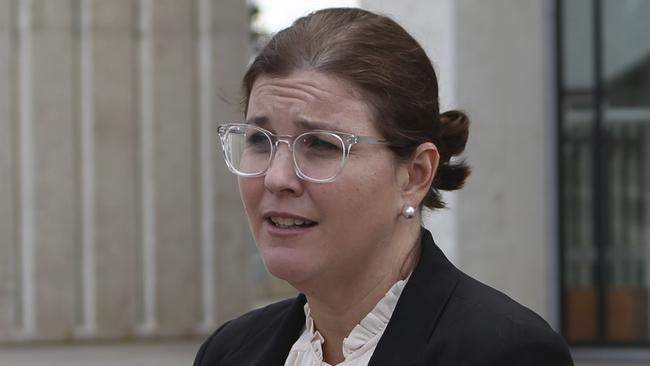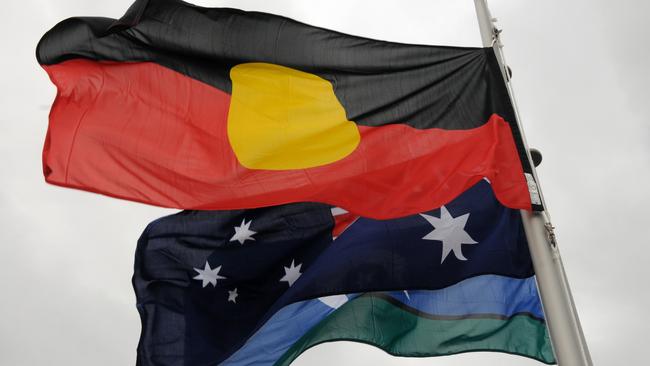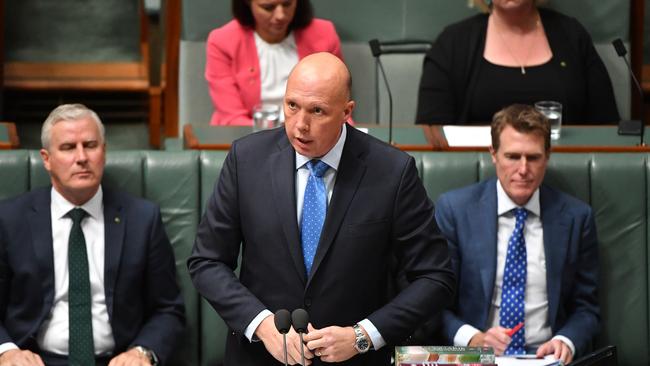High Court’s Aboriginal ruling sets an impossible double standard
This week’s troubling High Court decision not only suggests that Australians are not all equal before the law, but also shows how willing some are to override government decisions, writes Peta Credlin.
Rendezview
Don't miss out on the headlines from Rendezview. Followed categories will be added to My News.
Should someone not born in Australia and not a citizen of Australia be allowed to remain here despite committing serious crimes?
Normally, the answer is a resounding “no” – but this week, the High Court decided that there was a different rule for people identifying as aboriginal.
Defenders argued that we shouldn’t be too concerned with this new race-based judgment given that, as Professor Megan Davis pointed out, “there’s not too many blackfellas who are born overseas and need a visa to come back home”.
But that’s not the point – establishing different classes of human beings based on race is a dangerous precedent even if, in the immigration field, not many people are likely to be impacted. As with all aspects of law, the principle matters.
In this case, the majority of judges imported concepts from land rights law to immigration law, so courts can be very inventive when it comes to creating legal consequences that parliament would never have imagined.
In immigration law, the term “alien” usually refers to anyone who’s not an Australian citizen. Under the Citizenship Act and well-settled Australian law, people who are not citizens and who commit crimes punishable by more than 12 months in gaol are deported at the end of their sentences.

Some of the people caught by this law have been in this country for decades and have little-if-any connection with their country of citizenship. Kiwis, for instance, can live in this country indefinitely, without ever becoming citizens, and many of them do. Prior to 1984, Britons could even go on the electoral roll without becoming citizens.
There are hundreds of thousands of people who are very long-term residents of this country with extensive family networks here who, as non-citizens or “aliens”, are legally liable for deportation if they commit a serious crime. And Home Affairs minister Peter Dutton has so far deported more than 5000 people under these provisions.
In this case, though, through a maternal grandmother for one, and paternal great-grandparents, for the others, these two men claimed to identify as aboriginal; and, despite not being born in Australia and despite never having applied for Australian citizenship, claimed that their aboriginality meant they weren’t “aliens” at law and couldn’t be deported.
Astonishingly, the High Court agreed with them, albeit by the narrowest of margins, in a 4/3 split decision.
In essence, the majority of the court held that aboriginal people, because of their connectedness to Australia, could not be “alien” to this country even if only in a strictly legal sense; and that the Mabo decisions giving traditional owners title over land meant that such people had a right to remain in Australia in order to exercise it.

On many levels, this is a troubling decision: first, it suggests people are not all equal before the law and that race can override a law of the parliament; second, it shows the extraordinary readiness of judges to invent new legal concepts to overcome the decisions of government; and third, it introduces a new and divisive concept into Australian law that can now only be changed by a subsequent High Court judgment, and that’s unlikely, or by a referendum to change the constitution.
On the face of it, this week’s decision gives people a new and special status if they are recognised as aboriginal. Now, I can understand the dilemma the judges faced. Aboriginal people are the First Australians. There is a genuine connectedness with the land. Even so, the High Court majority seems to have given aboriginal people a status that it would deny everyone else.
As Chief Justice Susan Kiefel put it in a powerful and persuasive dissenting judgment, just because someone might “belong” to the land in a spiritual sense, that doesn’t give them any “belonging … in the constitutional sense”.

In the Chief Justice’s view it was quite wrong of the court to seek to determine who might be an alien under the Citizenship Act. “Such an approach would involve matters of values and policy” she said. “It would usurp the role of the parliament”. Yet this is precisely what a majority of the court then went on to do.
Indeed, this is the latest example of the judicial activism that holds that judges have a better sense of what’s right than the democratically elected parliament, and accountable ministers. Of course, under our system, it is indeed up to judges to interpret and apply the law. It’s just that judges used to think that their duty was to do what parliament would have intended, had MPs applied themselves to the facts before the court. More and more these days, judges are remaking laws, not just interpreting them.
And while the judges might have felt differently about a law expressed to deal with “non-citizens”, as opposed to “aliens”, when it came to aboriginal applicants, it’s now going to be very hard to change this law without a massive and hugely divisive argument over whether aboriginal people should have some special status.
On Thursday, Peter Dutton flagged changes to overcome the High Court’s decision but of course, let’s not forget he’ll have to get them through the Senate.
Peta Credlin a columnist for The Daily Telegraph.
Originally published as High Court’s Aboriginal ruling sets an impossible double standard



